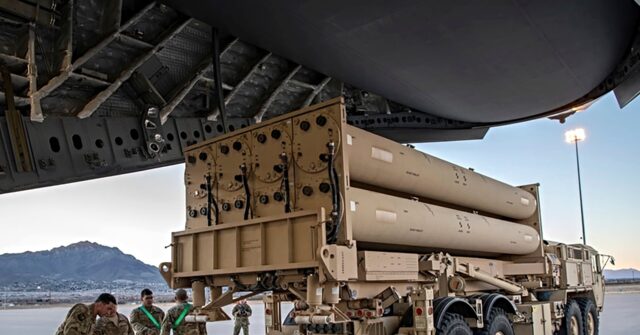The U.S. Department of Defense recently announced the deployment of a Terminal High Altitude Area Defense (THAAD) missile defense battery to Israel, a strategic response to escalating threats from Iran. The deployment was positively received by the Israeli government, which has expressed concern over a series of missile attacks from Iranian forces, especially following unprecedented offensives on April 13 and October 1, 2023. THAAD is designed to intercept incoming missiles and has a range of approximately 124 miles. However, the announcement triggered strong objections from China, which has consistently opposed THAAD’s presence in the region due to its implications on the balance of power. China links such deployments to its national security interests, perceiving them as threats that could undermine regional stability.
Chinese state media has a history of contesting the deployment of THAAD in South Korea, highlighting that the system’s defensive capabilities also extend into Chinese territory, raising concerns over its potential to disrupt regional security. During the years of THAAD’s initial deployment in South Korea, China rallied public support for boycotts against South Korean businesses and attempted cyber intrusions to compromise the system’s integrity. Although THAAD in South Korea is positioned primarily as a deterrent against North Korean threats, Chinese commentators argue that the U.S.’s military actions, including its new support for Israel, exacerbate tensions in the Middle East. The Pentagon’s confirmation of THAAD’s deployment reaffirms America’s commitment to Israel’s defense amidst increasing aggression from Iranian proxies.
The Israel Defense Forces (IDF) reported that they successfully intercepted 99 percent of the missiles launched during the Iranian attacks in April and early October, demonstrating the effectiveness of their existing missile defense systems. Nonetheless, the Pentagon’s decision to send THAAD aligns with its strategic goal of mitigating future missile threats to Israel, reassuring both Israeli forces and American citizens residing there. Alongside the missile defense system, additional U.S. military personnel will be deployed to manage the THAAD operations, reflecting the ironclad commitment the U.S. holds towards securing Israel against Iranian aggression.
In the backdrop of these developments, bilateral discussions between the Israeli government and U.S. officials indicate a growing concern about the broader implications of military action. President Joe Biden’s administration has pressured Israel to moderate its military responses following the brutal Hamas attack on October 7, 2023, where 1,200 individuals were killed, and 250 were abducted. In a bid to balance military support with a diplomatic approach, the Biden administration proposed a package that included diplomatic assurances and a weapons supply, urging Israel to refrain from direct attacks on Iranian resources.
The deployment of THAAD occurs amidst rising tensions following the Hamas invasion, prompting Israel to engage deeply in military campaigns against Hamas in Gaza and Hezbollah in Lebanon. U.S. Secretary of Defense Lloyd Austin reinforced the need for Israel to prioritize the safety of UN peacekeeping forces and to consider diplomatic avenues for securing long-term peace, particularly in Northern Israel. However, many in Israel view these U.S. suggestions as undermining their right to defend against existential threats, leading to friction in the U.S.-Israel relationship as both sides navigate complex geopolitical realities.
Chinese government officials reacted promptly to the announcement of THAAD’s deployment in Israel, predicting that it could exacerbate the regional crisis and alter power dynamics in favor of Israel. Chinese analysts warned that this move would embolden Israel’s military actions against Iran and its allies, potentially prompting retaliation from Tehran. Citing a historical context of opposing U.S. military installations, particularly THAAD in South Korea, China framed the deployment as part of a broader U.S. strategy to destabilize the region. The historical antagonism between the U.S. and China over missile defense systems continues to illustrate the delicate balance of power that defines security policies in the Asia-Pacific and Middle Eastern domains.

